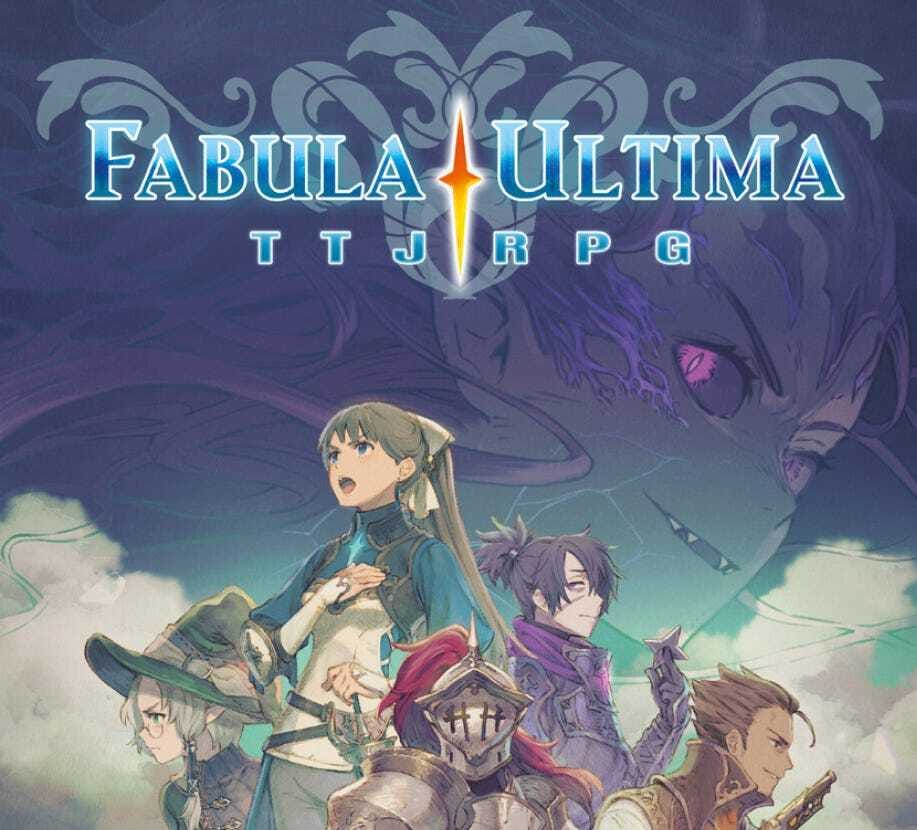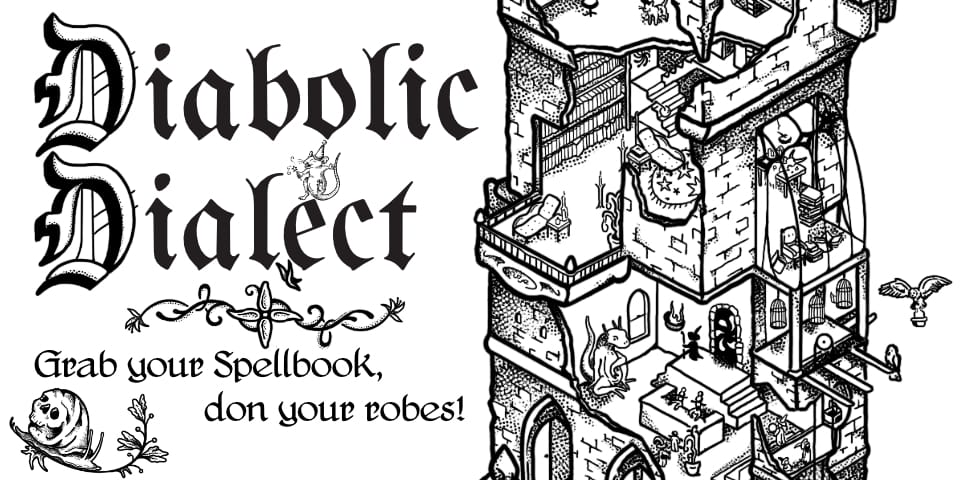A Quick Note
Before we get into it, a quick note! This is our first newsletter coming from Beehiiv rather than Substack. As many of you probably already know Substack has had a bit of a Nazi problem in recent years, so we have shifted off of it. If you are noticing any technical difficulties please let us know at any of the links at the bottom of this article. Also if you recently unsubscribed and are getting this again, apologies for the extra email! Although I don’t think that should happen for anyone.
I would encourage anyone who runs their own newsletter on Substack still to look into alternatives. Beehiiv has a compelling list of features at a free tier, but other creators have made various lists of the competing options. With all that said, lets get into the article!
Games that Run Themselves
While playtesting my most recent game, Diabolic Dialect, I’ve noticed something interesting; I found myself in games where the table seemed to feel they had a built-in license to make decisions and influence the world in ways that not every game encourages. This struck me as fascinating, since this wasn't a core goal of my mechanics. I came to two different possible conclusions: either the players were being encouraged by the mechanics within the game to take ownership without any explicit call out needed, OR the players and GMs running the playtests were doing these things because they were comfortable and experienced roleplayers and GMs.
To help narrow it down, I did my best to play the game with a good variety of players, making sure to get people at the table who have various levels of experience with TTRPGs; I found that even with people who are less entrenched in the hobby, there was a pretty consistent trend towards players taking more ownership of the narrative.

The cover of Diabolic Dialect, a game of freeform magic and wacky wizards.
What Caused it?
In order to explain the next bit, I need to talk about how Diabolic Dialect works. In the game, players take the role of wacky wizards, casting free-form spells. These spells are cast by forming a phrase or sentence of what you want to do, and then just saying it! After that you roll dice equal to the number of words in the sentence or phrase. The dice determine if it succeeds, fails, or something crazy happens - called a mishap. Players are encouraged to use magic for everything - both because it’s basically the only mechanic for interacting with the world and also through a bit of narrative fluff about your wizard being a frail, over-reliant mage.
As games went on I often found that the free-form spells would propel the narrative on their own, taking a huge amount of weight off me as the GM. This was primarily through the amount of flexibility it gave to players in how they wanted the game and world to grow and change. Often overcoming a challenge or interacting with an obstacle became a great opportunity for players to flex their creative muscles and flesh out aspects of the world. In the worst case, a failure on one of these spells would lead to a great experience as the magical hijinks would cascade the players into another obstacle or raise the stakes.
Since the spellcasting is so open ended and there aren’t any explicit rules for who ‘owns‘ the narrative of the game, it was common for players to cast spells that said something about the world. Casting spells that: implied (or forced) the existence of heaven and hell, brought complex education systems into focus or portrayed a complex culture that hadn’t existed before. These sorts of things are only possible with a very open ended system and I’m sure you can imagine some catastrophic and hilarious mishaps when a player swings for the fences and fails with a spell of the scale in the above examples.
Does this Happen in Other Games?
The free-form nature of these spells and the inherently silly tone of the game often led to an experience where players felt comfortable taking ownership of the narrative without needing any explicit prompting. However, while some games achieve these experiences through simple mechanics that give players lots of narrative power implicitly; many games opt for mechanics that purposefully and explicitly hand ownership to players at the table.

The cover of Fabula Ultima, a popular TTRPG that aims to emulate JRPG mechanics in a tabletop setting.
For example, in the game Fabula Ultima players can spend their Fabula Points to take on narrative ownership of a part of the world; a player might spend a point to explain a connection that could help in the current quest or flesh out the lore to a mysterious enemy. This allows players to pick and choose where they want to have say, or to push the game in a direction they want. The game also explicitly encourages the GM to allow players to have narrative ownership of things that might relate to their character. For example, a mage gets to determine the specifics of the arcane and how it works in the world, while a character who has history with a guild might determine the specifics of its inner workings.
However, these mechanics give ownership in relatively narrow instances. Allowing players to fill in what the game calls "grey areas" while still relying on the GM to maintain control of the adventure. The consequence of this directed ownership is that it can often make players feel like they can only take ownership of the places they are explicitly given ownership of. This isn't necessarily a bad thing, and in many ways is quite necessary to forge the types of experiences that the game is trying to give to players. Many games wield these sorts of ownership mechanics like this, building incentives for players to shape the world in smaller ways that fit with the core themes, while also protecting the core experience the game is looking to create in some way. In this case, a grand JRPG-style adventure built by the GM.
How do Modern Games Pass Narrative Ownership?
In many modern games, ownership of the narrative is passed through the core mechanics of the game; rather than having rules that narrow the breadth of ownership as explicitly as Fabula Ultima. Apocalypse World, by Vincent and Meguey Baker, and games that are Powered by the Apocalypse (PbtA) use moves as a way to shift between the narrative and mechanics. Moves are small, standalone mechanics that help guide the play at the table. Moves like “Go Aggro on Someone” and “Read a Sitch“ from Apocalypse World do a couple of things. These moves set up some scaffolding where mechanics can direct the game more than freeform roleplay might, they also help frame what the game is about through their names and in the process they help to pass the narrative ownership smoothly between players and facilitator.

The cover of Apocalypse World, the beginning of the Powered by the Apocalypse renaissance.
A game like Apocalypse World still largely focuses the players on their character and the things surrounding them. The Master of Ceremonies (or MC, their phrase for Game Master) develops the larger world and embodies the non-player characters, but they also will engage the players with questions about the larger world. These domains are somewhat explicit even if they aren’t all codified into mechanics. However, the game frames play as a conversation with moves passing ownership or spotlight between the player making the move and the MC. Through this back and forth the narrative ownership passes fluidly around the table.
Why is Any of this Important?
In Diabolic Dialect I don’t give much guidance to the GM or the players for how to pass narrative ownership. The spells do all the heavy lifting, dropping a nuke into player’s hands and then walking away without saying much more than “lean into what the players do“. However, leaving this completely implicit means there’s also little direction. Fabula Ultima goes in the opposite direction, with the strictest and most explicit structure we looked at for when players get to take ownership of the broader narrative. This leads to a more traditional structure where the GM drives a larger part of the world. Apocalypse World strikes somewhat of a balance, with domain that players and the GM have ownership over established, but the flow of the conversation and the narrative ownership that passes with it more freeform.
Its important to know what experience we want to build when we’re making a game. None of these options are bad, although they do create very different experiences. What elements do we want players to contribute to? What elements do we want players to uncover - placed their by the GM - and struggle against? How little direction can we build into a game before it looses weight and meaning?
Thanks for Reading!
A couple of announcements and updates here at the end, since we’ve been a bit behind on our newsletter over the summer.
Diabolic Dialect - the game referenced in this article - is out now on Itch! Check it out if you like… well the stuff mentioned in the article!
Also we have a podcast called Gamestorm out now! Each episode features me(Chase) and a guest designer randomly selecting a mechanic or design conceit and designing a game from scratch in about an hour. You can find all the games from it on our Itch as well. I hope you’ll check it out!
If any of you will be at Gamehole Con, we will have a Demo Booth there with some of our games! So come say hi!
Last but certainly not least - Vesta Mandate! We’re coming in hot with editing and layout right now, but its looking like we are going to be coming up on our print run for everything in the next couple of weeks. I can’t wait to get the game in your hands and see what you do with it.
Thanks for stopping in, hope you enjoyed the article!

